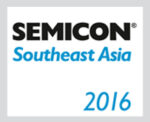Mitsubishi Corporation Announces Start of Operations at New Elevator Plant in India
TOKYO – Mitsubishi Corporation (MC) and Mitsubishi Electric Corporation (MELCO) have set up a new elevator plant in India at MELCO subsidiary Mitsubishi Elevator India Private Limited (IMEC). The new plant will start manufacturing elevators for the Indian market on September 15, 2016 and will mainly produce the “NEXIEZ-LITE” model, which is a key component of IMEC’s strategy of targeting low- and mid-rise buildings in India. With demand reaching 48,000 units for newly constructed buildings in 2015, India is now the world’s second largest market for new escalators and elevators, following China, and demand is expected to see continued growth. MC’s elevator business in India dates back to 1995, when it started to support a local sales agent. In 2012, MC and MELCO established an elevator distribution joint venture company in order to strengthen its business base for sales, installation and maintenance. The start of manufacturing will not only enable IMEC to achieve competitiveness in pricing and delivery lead time, but will also contribute to strengthening IMEC’s business capability to supply more market oriented products and after-sales services based on a streamlined structure for production, sales, installment and maintenance. IMEC is also planning to construct a 41-meter high elevator test tower and a field training center for installment and maintenance in an effort to enhance the capacity of engineers, all with the aim of improving the quality and reliability of MELCO’s products and services and further boosting customer satisfaction. As its escalator and elevator market continues to grow, India stands to be positioned as one of the world’s most important markets in this business. Through the construction of this new plant and additional shares acquired in IMEC in March of this year, MC will continue to strengthen its business foundations as a strong competitor in the escalator and elevator business […]





